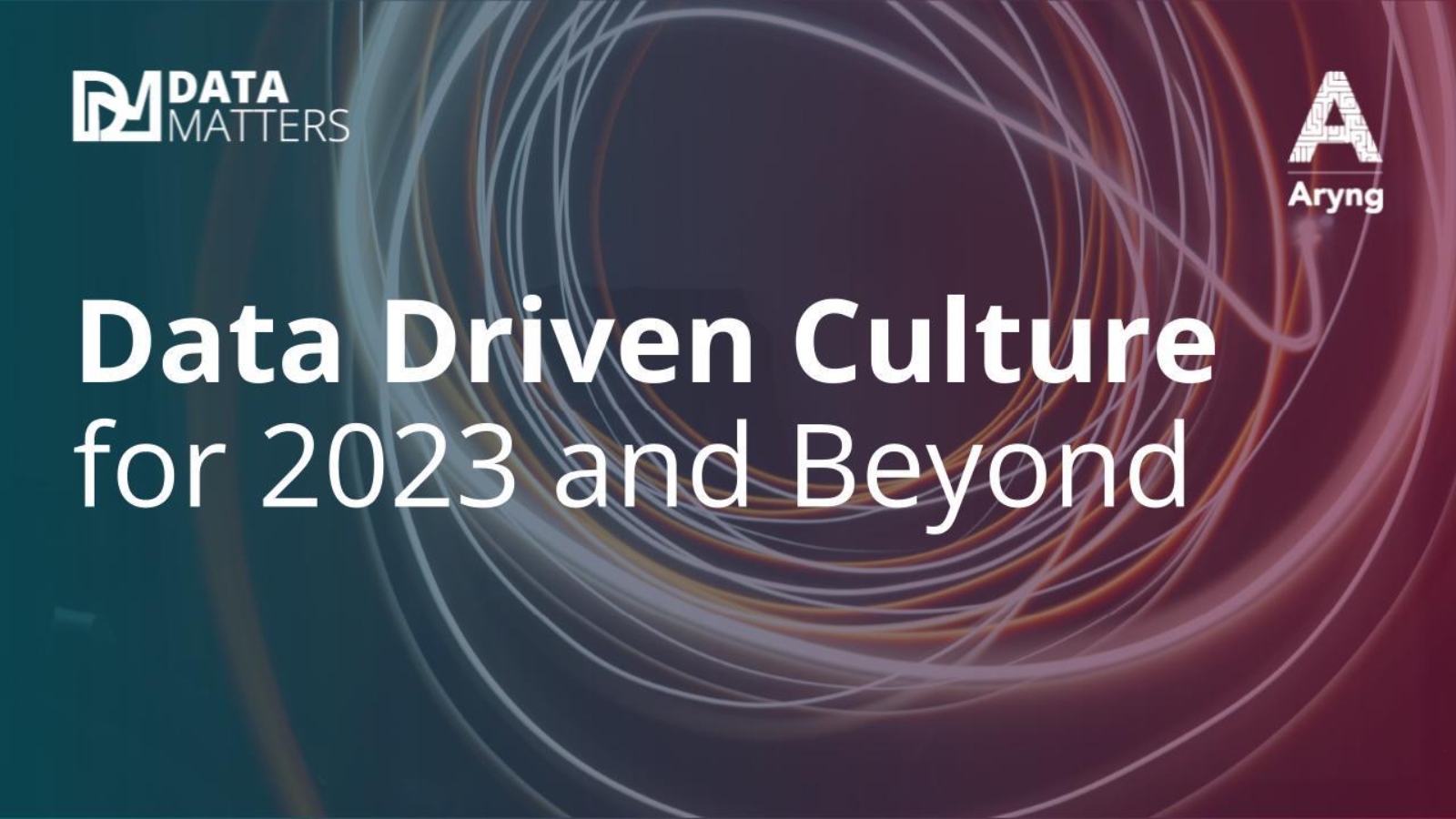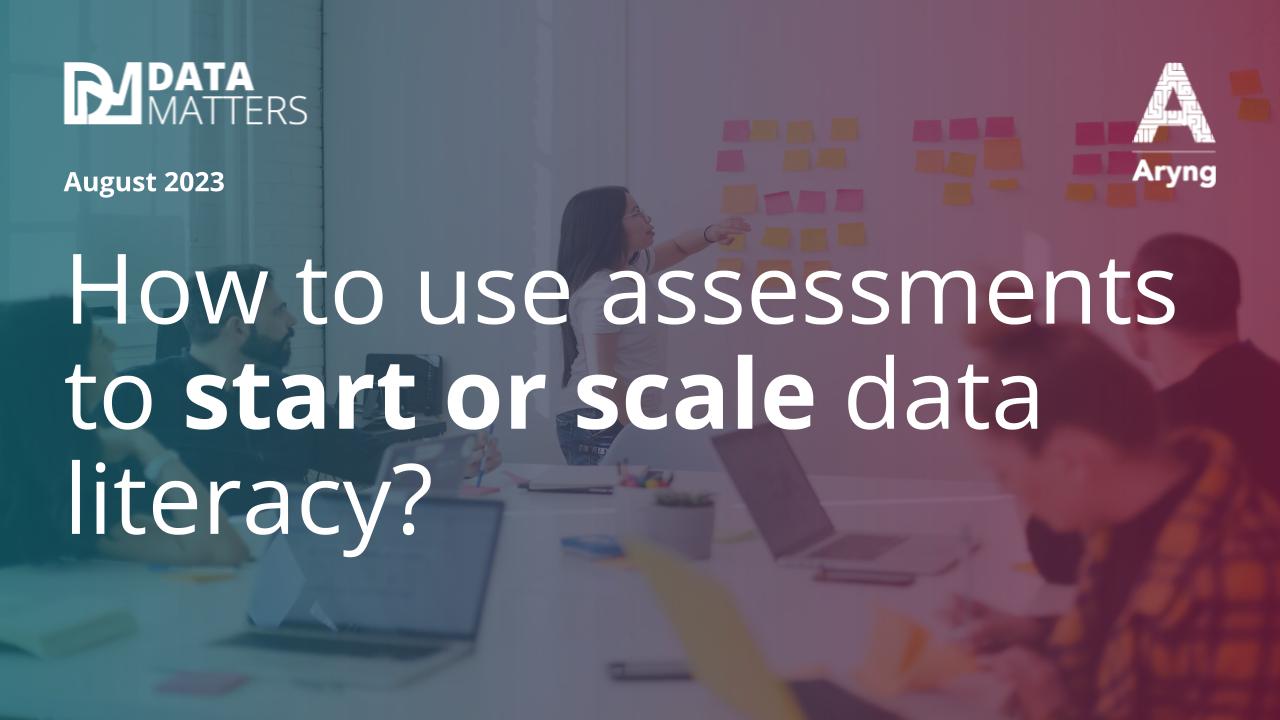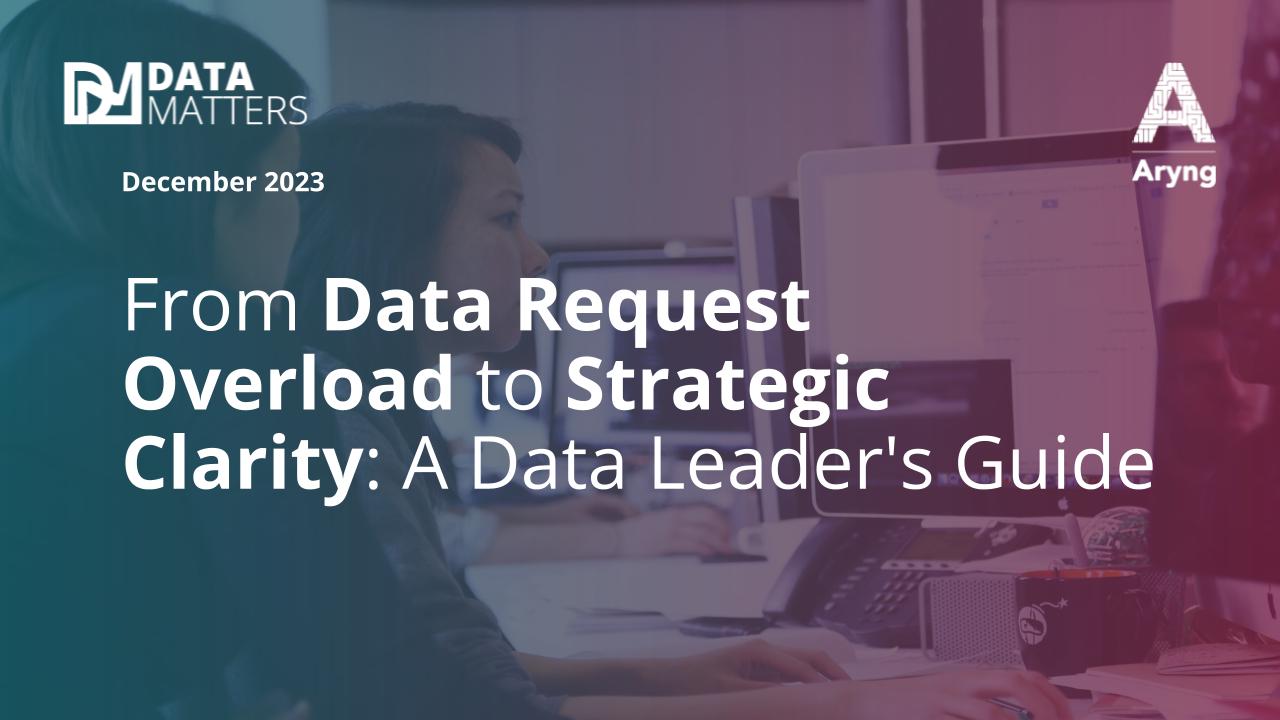Why does a data-driven culture matter? There are several reasons. The most important one is that the data in your organization has tremendous value. Organizations that tap into this outperform their competitors. A data-driven mindset is the key to unlocking the value of the data each employee works with.
In the past, a culture of data has been represented by perception-based survey data that is plugged into a maturity model. The challenge with viewing culture this way can be the subjectivity, the potential for sampling error, and the long duration over which the analysis of change is usually done if it is done at all. So, it can be hard to tell if real progress is being made.
For 2023 and beyond, here are six ways to get started on a data-driven culture. Or, maybe you need to put a fresh spin on your current data culture efforts.

Take a closer look:
Leaders change first:
Leaders influence the culture when they sponsor or champion cross-functional teams or groups to work on specific problems or opportunities using data to draw insights. They also champion a structured process that is aligned with business value. Here are three ways leaders drive a culture of data:
- Make sure the project team has a shared goal. Too often, conflict arises because people from different functions have different views of the problem or goal.
- Make sure key stakeholders are involved from the start. If stakeholders are brought in after the data has been gathered and analyzed, it is too late.
- Functional barriers limit or hide the value of your data. Make sure the analytics project team is viewing the data end-to-end, not just the parts they deal with.
Change the way you make decisions with data:
Start by evaluating your decision-making processes:
- Data-driven decisions should reflect your top business goals and priorities. Otherwise, there is a good chance your people are wasting time trying to solve problems that will have a marginal impact.
- Data-driven insights should lead to recommendations that have a clear, and unbiased understanding of the business impact. Stakeholders need to evaluate whether the recommended change is worth the time and effort.
The new data literacy skills
Technology is rapidly changing our expectations. Recent studies on data literacy-related skills have the following insights.
- “Companies have over-indexed” on three skills: data visualization (aka tools), communication (aka storytelling), and change management. (1)
- “Math alone does not ensure success.” (2)
- 29% of leaders cite a lack of skills as a primary reason for AI failure. (2)
- 25% of leaders cite a lack of skill as a primary reason for the lack of successful AI adoption. (2)
So, which data literacy skills become even more vital in 2023 and beyond? Find out by assessing yourself here in three areas and see how you do. It is only 5 questions and takes 2 minutes. And we don’t ask for any personal information.
Conclusion
Culture changes slowly and you cannot change everything at once. But mindsets can change quickly when you create alignment by defining business value, empowering cross-functional collaboration and decision-making with data, and giving people the skill that fits your organization. A few small steps can be the transformational catalyst you need.
Footnotes:
- Coursera Global Skills Report 2023 https://www.coursera.org/skills-reports/global
- Create More Business Value from your Data: embrace organic integration of AI across the business, Feb. 2023, IDC Research and DataIku. https://pages.dataiku.com/report-idc-2023









